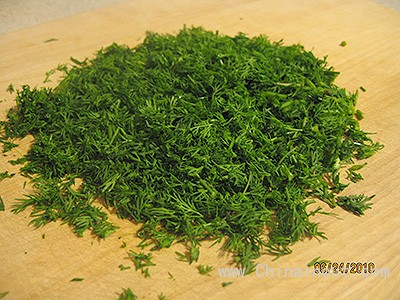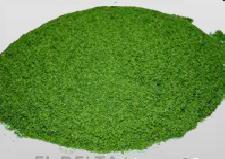埃及蒔蘿
別稱:土茴香
植物名(Anethum Graveolens)
規(guī)格:蒔蘿碎葉
季節(jié):5月到11月
包裝:凈重25公斤
性味:辛,、溫,,無毒。
成分:果實含有揮發(fā)油(油中主要成分為藏茴香酮,、檸檬烯,、水芹烯等,及脂肪油,。
藥理:健胃,、驅(qū)風、催乳,。
功用主治:小兒氣脹,、嘔逆、腹冷,、食欲不振,。
Dill
Botanical Name ( Anethum Graveolens )
Available Form:
Dill Tips crushed Leaves
Season: Available from November till May
Packing : In polypropylene bag 25 KGS Net weight
(中國進出口網(wǎng))



蒔蘿功效:
Health benefits of dill
? Dill weed co
ntains numerous plant derived chemical compounds that are known to have anti-oxidant, disease preventing, and health promoting properties.
? This popular herb co
ntains no cholesterol and low in calories. However, it is co
ntains many anti-oxidants, vitamins like niacin, pyridoxine etc, and dietary fibers which help to co
ntrol blood cholesterol levels.
? Dill leaves (sprigs) and seeds co
ntain many essential volatile oils such as d-carvone, dillapiol, DHC, eugenol, limonene, terpinene and myristicin.
? The essential oil, Eugenol in the dill has been in therapeutic usage as local anesthetic and anti-septic. Eugenol has also been found to reduce blood sugar levels in diabetics. (Further detailed studies required to establish its role.)
? Dill oil, extracted from dill seeds has anti-spasmodic, carminative, digestive, disinfectant, galactagogue (helps breast milk secretion), sedative properties.
? It is also rich in many vital vitamins including folic acid, riboflavin, niacin, vitamin A, ß-carotene, vitamin-C that are essential for optimum me
tabolism inside the body.
? Vitamin-A and beta carotene are natural flavo
noid antioxidants. 100 g of dill weed sprigs provide 7718 IU or 257% of recommended-daily levels of this vitamin. Vitamin A is also required for maintaining healthy mucus membranes and skin and is essential for vision. Co
nsumption of natural foods rich in flavo
noids helps body to protect from lung and oral cavity cancers.
? Fresh dill is an excellent source of antioxidant vitamin; vitamin-C. 100 g co
ntain a
bout 85 g or 140% of vitamin C. Vitamin-C helps body develop resistance against infectious agents and scavenge harmful, pro-inflammatory free radicals.
? Dill weed is a good source of minerals like copper, potassium, calcium, manganese, iron, and magnesium. Copper is a cofactor for many vital enzymes, including cytochrome c-oxidase and superoxide dismutase (other minerals function as cofactors for this enzyme are manganese and zinc). Zinc is a co-factor in many enzymes that regulate growth and development, sperm generation, digestion and nucleic acid synthesis. Potassium is an im
portant compo
nent of cell and body fluids that helps co
ntrol heart rate and blood pressure. Manganese is used by the body as a co-factor for the antioxidant enzyme, superoxide dismutase.
Dill has all the characters to co
nsider it has one of the most valuable functio
nal foods. 100 g of dill weed provides o
nly 43 calories, but its phyto-nutrients profile is no less than any other high calorie food source; be it nuts, pulses, cereals, or meat group.
100 g fo this herb provides (%of RDA per 100 g)-
37.5% of folates (vitamin B11),
14% of vitamin B-6 (pyridoxine),
23% of riboflavin (vitamin B-2),
140% of vitamin-C,
257% of vitamin-A,
21% of calcium,
82% of iron and



